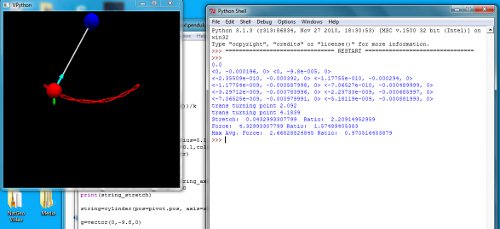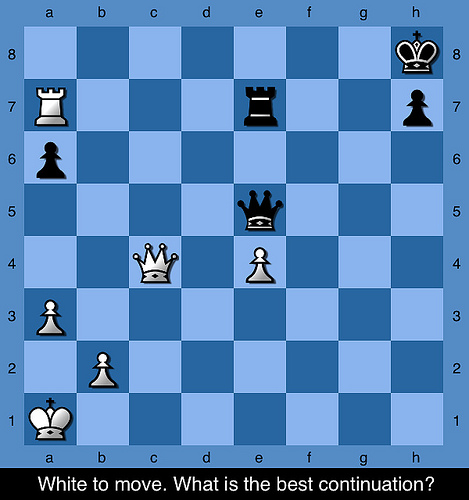There’s a famous story about Richard Feynman at Cornell suffering from the science equivalent of writer’s block, after WWII. He was depressed and feeling like everything he did was pointless, until one day he spotted a student throwing a plate up in the air in the cafeteria. As the plate spun, it wobbled, and the… Continue reading Simulating a Pendulum
Category: Computing
Quantum Computing and Chess Problems
In which I steal an analogy from Joe Emerson to explain the limits of quantum computing. ———— As previously noted, a couple of weeks ago I went to Canada for the opening of the University of Waterloo’s new Quantum Nano Center (their photo gallery includes one picture of me being interviewed, along with lots of… Continue reading Quantum Computing and Chess Problems
Baffling Demographic Math: Women in Computing
Somebody on Twitter linked this article about “brogrammers”, which is pretty much exactly as horrible as that godawful neologism suggests. In between descriptions of some fairly appalling behavior, though, they throw some stats at you, and that’s where it gets weird: As it is, women remain acutely underrepresented in the coding and engineering professions. According… Continue reading Baffling Demographic Math: Women in Computing
Two Women-in-Science Notes
Two things I was forwarded or pointed toward this week, that interact a little oddly. First chronologically is from the New York Times, which has a story about how Harvey Mudd College has boosted the number of female computer science majors, by committing serious resources to reforming the intro course (which is required of all… Continue reading Two Women-in-Science Notes
Final Notes on a Toy Model of the Arrow of Time
We’re in the home stretch of this term, and it has become clear that I won’t actually be using the toy model of the arrow of time I’ve talked about in the past in my timekeeping class this term. These things happen. Having spent a not-insignificant amount of time playing with the thing, though, I… Continue reading Final Notes on a Toy Model of the Arrow of Time
A Toy Model of the Arrow of Time
The toy model of statistical entropy that I talked about the other day is the sort of thing that, were I a good computational physicist, I would’ve banged out very quickly. I’m not a good computational physicist, but by cargo-culting my way through some of the VPython examples, I managed to get something that mostly… Continue reading A Toy Model of the Arrow of Time
Notes Toward a Toy Model of the Arrow of Time
I’m fairly certain somebody has already done this, because it’s such an obvious idea. It’s a little beyond my cargo-cult VPython skills right at the moment, though (I can probably learn to do it, but not right now), and I none of the applets I Googled up seemed to be doing this, so I’m posting… Continue reading Notes Toward a Toy Model of the Arrow of Time
Machine Translation Lets Me Down
It’s a sign of how good computers have gotten that I’m faintly offended whenever Google Translate fails to come up with something even halfway sensible. I mean, translating a blog post from one language to another is a ridiculously difficult problem, and yet they usually do a passable job. It’s only when the vanity search… Continue reading Machine Translation Lets Me Down
Reinventing Discovery by Michael Nielsen
This coming June will mark ten years since I started this blog (using Blogger on our own domain– here’s the very first post) and writing about physics on the Internet. This makes me one of the oldest science bloggers in the modern sense– Derek Lowe is the only one I know for sure has been… Continue reading Reinventing Discovery by Michael Nielsen
PNAS: Adam DeConinck, High-Performance Computing Systems Engineer
(This post is part of the new round of interviews of non-academic scientists, giving the responses of Adam DeConinck, who works at a company providing supercomputing resources. The goal is to provide some additional information for science students thinking about their fiuture careers, describing options beyond the assumed default Ph.D.–post-doc–academic-job track.) 1) What is your… Continue reading PNAS: Adam DeConinck, High-Performance Computing Systems Engineer

